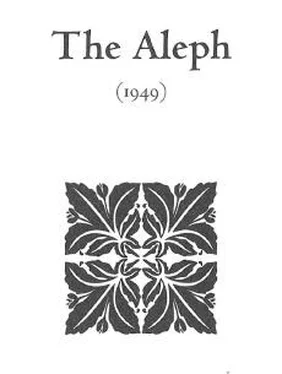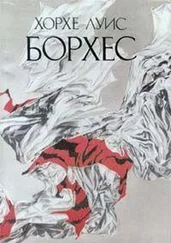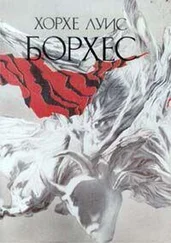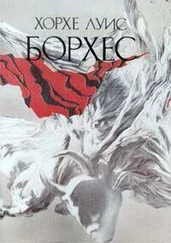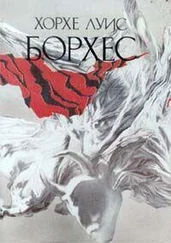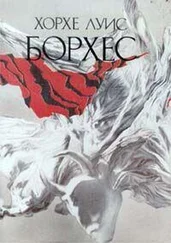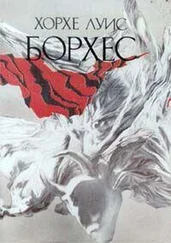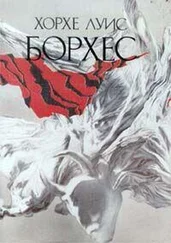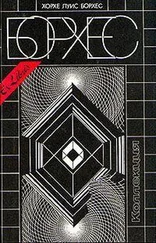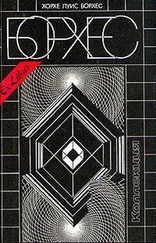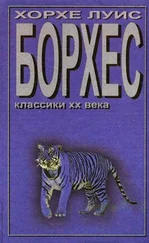Хорхе Борхес - Collected Fictions
Здесь есть возможность читать онлайн «Хорхе Борхес - Collected Fictions» весь текст электронной книги совершенно бесплатно (целиком полную версию без сокращений). В некоторых случаях можно слушать аудио, скачать через торрент в формате fb2 и присутствует краткое содержание. Год выпуска: 1999, ISBN: 1999, Издательство: Penguin (UK), Жанр: Старинная литература, на английском языке. Описание произведения, (предисловие) а так же отзывы посетителей доступны на портале библиотеки ЛибКат.
- Название:Collected Fictions
- Автор:
- Издательство:Penguin (UK)
- Жанр:
- Год:1999
- ISBN:9780140286809
- Рейтинг книги:5 / 5. Голосов: 1
-
Избранное:Добавить в избранное
- Отзывы:
-
Ваша оценка:
- 100
- 1
- 2
- 3
- 4
- 5
Collected Fictions: краткое содержание, описание и аннотация
Предлагаем к чтению аннотацию, описание, краткое содержание или предисловие (зависит от того, что написал сам автор книги «Collected Fictions»). Если вы не нашли необходимую информацию о книге — напишите в комментариях, мы постараемся отыскать её.
Collected Fictions — читать онлайн бесплатно полную книгу (весь текст) целиком
Ниже представлен текст книги, разбитый по страницам. Система сохранения места последней прочитанной страницы, позволяет с удобством читать онлайн бесплатно книгу «Collected Fictions», без необходимости каждый раз заново искать на чём Вы остановились. Поставьте закладку, и сможете в любой момент перейти на страницу, на которой закончили чтение.
Интервал:
Закладка:
* Cerro Largo: A frontier area in northeast Uruguay, near the Brazilian border. Aparicio had to recruit from all over the countryside, as he was faced by the Triple Alliance of Brazil, Argentina, and the Uruguayan Colorado government.
* Thirty-three: This in homage to the tiny band of thirty-three soldiers who in 1825 crossed the Uruguay River along with Juan Antonio Lavalleja and Manuel Oribein order to galvanize the Uruguayans to rise up against the Brazilians who at that time governed them. The flag of the Uruguayan rebellion against Brazil carried the motto Libertad o Muerte ("Liberty or Death"). Thus Silveira asserts himself as a tough, independent, and yet "patriotic"gaucho.
* Aparicio's revolution: See the note to p. 386, above.
* Montoneros:The montoneros were gaucho (Blanco, or White, party) forces, something like quasi-independent armies, organized under local leaders to fight the Unitarians (the Colorados, or Red party) during the civil wars that followed the wars of independence.
* White badges: To identify them with the Blancos, as opposed to the Colorados (Red party). The armies would have been somewhat ragtag groups, so these badges (or sometimes hatbands) would have been virtually the only way to distinguish ally from enemy in the pitched battles of the civil war.
* Cut anybody's throat: Here and in many other places in Borges, the slashing of opponents' throats is presented in the most matter-of-fact way. It was a custom of armies on the move not to take prisoners; what would they do with them? So as a matter of course, and following the logic of this type of warfare (however "barbaric" it may seem to us today), losers of battles were summarily executed in this way.
Guayaquil
* Guayaquil: The name of this city in Ecuador would evoke for the Latin American reader one of the most momentous turns in the wars of independence, since it was here that Generals Simón Bolívar and José San Martín met to decide on a strategy for the final expulsion of the Spaniards from Peru. After this meeting, San Martin left his armies under the command of Bolivar, who went on to defeat the Spaniards, but there is no record of what occurred at the meeting or of the reasons that led San Martin to retire from the command of his own army and leave the glory NOTES TO THE FICTIONS of liberation to Bolivar. A long historical controversy has been waged over the possible reasons, which the story briefly recounts. Clearly, the "contest of wills" thought by some to have occurred between the two generals is reflected in the contest of wills between the two modern historians. For a fuller (and very comprehensible) summary of this event and the historiographie controversy surrounding it, see Daniel Balderston, Out of Context: Historical Reference and the Representation of Reality in Borges (Durham, N. C.: Duke University Press, 1993), pp. 115-131. In this chapter Balderston also discusses Borges' equating of history with fiction, providing us another important way of reading the story. See also, for a brief historical summary, The Penguin History of Latin America (Edwin Williams, New York/ London: Penguin, 1992), pp. 227-228 and passim in that chapter.
* Gen. José de San Martín: As the note just above indicates, San Martin (1778-1850), an Argentine, was one of the two most important generals of the wars of independence, the other being Simón Bolivar, a Venezuelan. This story is subtly written from the Argentine point of view, because it deals with the reasons—psychological, perhaps, or perhaps military, or, indeed, perhaps other—for which San Martin, after winning extraordinary battles in his own country and in Peru (where he came to be called Protector of Peru), turned his entire army over to Bolivar so that Bolivar could go on to win the independence of the continent from Spain. The enigma of San Martin is one that absorbed the Argentine historical mind for decades, and perhaps still does, so any letters that might have even the slightest, or the most self-serving (if Argentines will forgive me that possible slur on the general's psyche), explanation for his actions would be of supreme importance to Argentine history. This story, then, is filled with those pulls and tugs between one sort of (or nationality of) history and another, one sort of "rationale" and another. Fishburn and Hughes note that the Masonic lodge mentioned in the story (p- 395) is the Logia Lautaro, of which San Martin was indeed a member. Masonic lodges were famed as centers of progressive, not to say revolutionary, thought in the seventeenth and eighteenth centuries. Modern Freemasonry was founded in the seventeenth century.
* Calle Chile: It is Fishburn and Hughes's contention that the physical, geographical location of this street is not really important here, though they give that location as "in the southern part of Buenos Aires,... some ten blocks from Plaza Constitución"; their interesting view of this street's mention here is, rather, that it is a symbolic name, linking JLB (that library he had inhabited [see"Juan Muraña"in this volume], the house, and perhaps some of the objets de la gloire that JLB had inherited from his grandfather and other members of his family) with the narrator of "Guayaquil": "The narrator lives in a street called Chile, Borges lived in a street called Maipú and both names are associated in the Argentine mind, since San Martin's great victory in Chile was the battle of Maipú."
* Baltasar Espinosa: The Spanish reader will sooner or later associate the young man's surname, Espinosa ("thorny") with the Christian "crown of thorns" evoked at the end of this story.
* Ramos Mejia: "A part of Buenos Aires in which the rich had weekend houses containing an English colony; now an industrial suburb" (Fishburn and Hughes).
* A couple of chapters of [Don Segundo Sombra]: The next sentence is perhaps not altogether opaque, but both its sense and its humor are clearer if the reader knows the novel in question. Don Segundo Sombra deals with the life ofa gaucho (considerably romanticized by nostalgia) and the customs of life on the pampas. Therefore, Gutre père sees nothing in it for him; indeed, the gauchesco novel was an urban form, a manifestation perhaps of what Marie Antoinette's critics were wont to call nostalgie de la boue, or so "The Gospel According to Mark" would seem to imply. JLB himself makes reference to this "urban nostalgia" in the story titled "The Duel," above, on p. 384.
Brodie's Report
* Qzr: The English reader will not, probably, be able to perceive the fine irony here. Brodie has said that these barbarous people do not have vowels, so he will call them Yahoos. He then gives a few words in their language. Here, the word for "citadel," qzr, is the Spanish word for citadel, alcázar, with the vowels removed. But the Spanish derives from the Arabic, which does not have vowels; the vowels are sometimes marked, sometimes not; thus, qzr is a transliteration of a word that any Spanish speaker would recognize as being fully and legitimately Arabic. Thus the Yahoos are, or might be, Arabs. Here Borges'"traveler's satire" is acute: one can find "barbarism" even in the most refined and advanced of societies.
Notes to The Book of Sand
The Other
p. 413: Another Rosas in 1946, much like our kinsman in the first one: The second Rosas, of course, is Juan Domingo Perón, the Fascist military leader who in 1945 was asked to resign all his commissions and retire, and who did so, only (Napoleon-like) to return eight days later to address huge crowds of people and later, in 1946, to be elected president. All this information is from Rodriguez Monegal, who then adds: "he was Argentina's first king" (390-391). As for "our kinsman," the details are a bit blurry, but Borges seems to have been related, on his father's side, to Rosas. Fishburn and Hughes talk about a "relative of Borges's great-great-grandfather."Borges hated and despised both these men.
Читать дальшеИнтервал:
Закладка:
Похожие книги на «Collected Fictions»
Представляем Вашему вниманию похожие книги на «Collected Fictions» списком для выбора. Мы отобрали схожую по названию и смыслу литературу в надежде предоставить читателям больше вариантов отыскать новые, интересные, ещё непрочитанные произведения.
Обсуждение, отзывы о книге «Collected Fictions» и просто собственные мнения читателей. Оставьте ваши комментарии, напишите, что Вы думаете о произведении, его смысле или главных героях. Укажите что конкретно понравилось, а что нет, и почему Вы так считаете.
